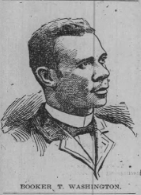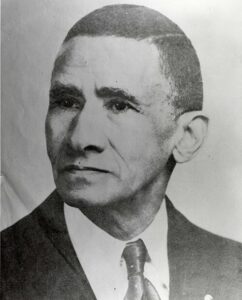Once upon a time in Black Entrepreneur History lived an African American man named Dr. Joseph Edison Walker who founded and was president of the Tri-State Bank of Memphis, Tennessee and founder of Universal Life Insurance Company, while being rumored at the time in 1957 as Memphis, Tennessee’s only Black millionaire[1].
Joseph Edison Walker was born the son of enslaved parents, George and Patsie Wheeler Walker on March 31, 1879 or 1880. His family was very poor, and Joseph grew up near the cotton fields where he was born.
Joseph Edison Walker’s Education & Marriage
Joseph E. Walker attended and graduated from Alcorn A&M College in Mississippi in the year of 1903, having earned a Bachelor of Science Degree. Later in the year of 1906, Joseph E. Walker became a doctor, earning his degree in medicine from Nashville, Tennessee’s historically Black college and university, Meharry Medical College, which is the first medical school located in the South of the USA for African Americans.
It was in the year 1906 that Dr. Joseph Walker also married his wife, Lelia O’Neal, a school teacher, who was also originally from the state of Mississippi. Dr. Walker and his wife lived in Indianola, Mississippi in a home they owned on Church Street, and Dr. Walker was a practicing physician for a total of fourteen years in that city, working in a small office where he would deliver babies with a lamplight[2]. While there, he also became the president of Delta Penny Savings Bank for about four years, and he was also president of the Mississippi Life Insurance Company, which he later bought out. During this time, he and his wife already started having children.
With all this experience in banking and financials, along with being a well respected medical physician, Dr. Joseph E. Walker moved his family to Memphis, Tennessee some time later in the 1920s, and chose to live on Mississippi Blvd in a home that was valued at ten thousand dollars, the equivalent to about $185,000 today in 2024. It was in Memphis, Tennessee that he founded and became president of the Universal Life Insurance Company in 1923. At the time, this was said to be the fourth largest Black-owned business in the United States of America. Dr. Walker was also a member of Sigma Pi Phi.
Not only that, in 1946, Dr. Joseph E. Walker became the founder and president of the Tri-State Bank of Memphis. He also was a philanthropist, working with such organizations like the National Urban League Memphis chapter and the Memphis Negro Chamber of Commerce along with the YMCA and Boy Scouts of America. He became the president of both the National Negro Insurance Association and the National Negro Business League.

Dr. Joseph E. Walker also became an author, releasing his autobiography inside the book From the Driftwood of Bayou Pierre in 1949. Prior to Dr. Walker releasing his autobiography, he studied at the Jarvis Christian College in Texas to earn his Doctor of Divinity degree. From there, he helped establish the organization of several churches, and became the national treasurer of the Christian Churches of America. He was also a principal financer of Walker Homes, an African American housing development which cost $12 million.
Circumstances Surrounding the Death of Dr. Joseph Edison Walker
According to his death certificate, Dr. Joseph Edison Walker passed away on July 28, 1958 in Memphis, Tennessee and later buried in Elmwood Cemetery, his funeral services having been held in the church he helped establish, the Mississippi Avenue Christian Church.
He had been shot to death as he worked in his Universal Life Insurance Company office by man who entered the premises, accusing the doctor of having cheated him out of a certain amount of money. This accusation was denied by Dr. Walker’s son, A. Maceo Walker. Dr. Joseph E. Walker was killed by a gunshot wound to his chest at approximately 8:30 that morning.
His fortune was divided between his children, and it was also stated by many that Dr. Joseph E. Walker was one of the most influential African Americans of all time.
Sources:
- The Memphis Press-Scimitar, Memphis, Tennessee, January 15, 1957
- The Memphis Press-Scimitar, Memphis, Tennessee, July 28, 1958





More Related Stories
Isaac Scott Hathaway – Founder of Isaac Hathaway Art Company & Designer of First African American Coin
James Wormley – Founder of the Most Expensive Hotel in Washington D.C. in 1800s – the Wormley Hotel
William E. Matthews – Wealthy Financial Broker & Civil Rights Leader of 1800s